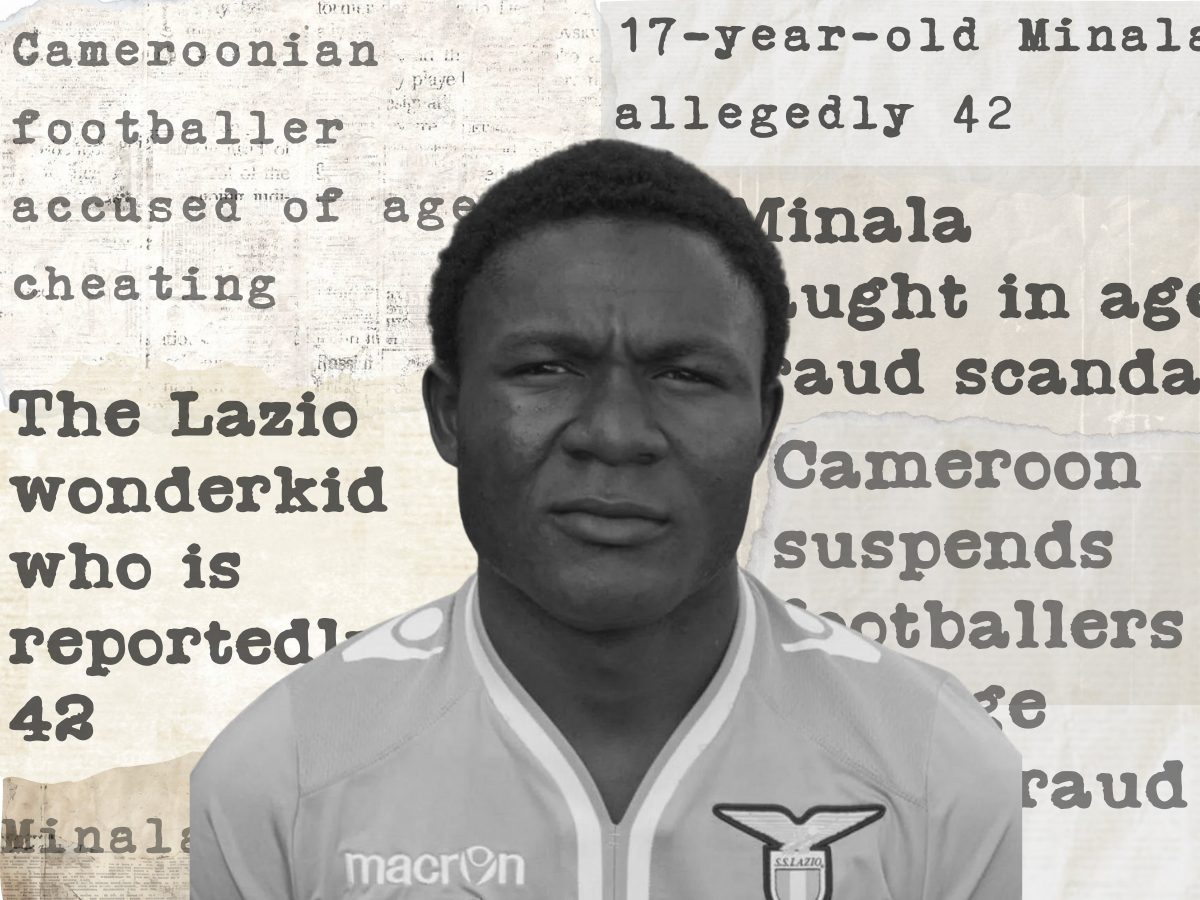Age fraud in football, especially among young athletes, has long cast a shadow over African football. This practice, where players lie about their age to gain a competitive advantage, distorts competition at youth levels, hinders the development of genuine talent, and trust in the sport. However, beneath the surface of these falsifications lies a deeper, more personal issue: the psychological pressures that drive players to deceive.
The controversy surrounding former Lazio’s Joseph Minala, who faced allegations from Senegalese media of being much older than his then stated age of 17, further highlights the pervasiveness of this issue as documented by the BBC back in 2014. Despite denials from Minala and his club, including threats of legal action, the situation sheds light on the immense pressure young athletes face.
Cameroon, in particular, has been a hotspot for age fraud. Research has found that poverty, limited job opportunities, and the allure of a lucrative football career create a perfect storm that tempts young athletes and their families to inflate ages. The desperation to escape economic hardship and secure a future through football often leads to falsified birth certificates and a culture of secrecy. According to Nigerian blogger, George Onmonya, “You can walk into any immigration office in Nigeria today, forge documents at the nearby business centre, change your name, place of birth, date of birth, pay 7,000-10,000 naira instead of the official price of about 5,500 for an international passport and within hours you have completed the whole process”.
Former footballer Samuel Eto’o, now president of the Cameroon Football Federation (FECAFOOT), has taken bold steps to combat this practice. Implementing mandatory MRI scans to estimate a player’s skeletal age, Eto’o’s reforms aim to bring integrity back to the sport. However, the psychological toll on players caught in this web of deceit is profound and often overlooked.
According to Psychology Today, players who falsify their age live under constant fear of being discovered, leading to chronic stress and anxiety. The need to maintain a lie can cause identity issues, as players struggle with the dissonance between their true selves and their public personas. This internal conflict can result in significant psychological distress.
Moreover, the pressure to perform at a high level for longer periods can lead to burnout and a sense of inadequacy. As reported by the BBC, players who claim to be younger face unrealistic expectations, exacerbating feelings of frustration and hopelessness. This pressure is compounded by the isolation that comes from hiding their true age, preventing them from forming genuine connections with their peers and family.
The case of Nigeria illustrates the extent of the problem. The country has a notorious reputation for age fraud in football. In the late 1980s, the Super Eagles were banned from FIFA competitions for two years after it was confirmed that players in the 1988 Olympics team had falsified their ages which was first reported by The New York Times, in 1989. Prominent players like Nwankwo Kanu and Obafemi Martins have faced similar suspicions, casting long shadows over their careers. Kanu, for instance, was rumoured to be as much as nine years older than his stated age, while the Nigerian Football Federation claimed Martins was born in 1978, despite his registration stating 1984.
The implications for these players are not just professional but deeply personal. Living a lie can lead to feelings of guilt and shame, creating a heavy emotional burden. The Mental Health Foundation suggests that this emotional strain can affect their overall well-being and long-term mental health. Mental health is undoubtedly a player’s foundation to build upon.
Eto’o’s fight against age fraud in Cameroon, marked by the use of innovative technology and a proactive approach, offers a blueprint for addressing this issue. However, it is crucial to understand the psychological pressures driving age fraud. Addressing these underlying issues requires more than just technological solutions; it demands empathy and support for players who find themselves trapped by circumstances beyond their control.
The future of African football hinges on achieving a level playing field where talent, not deceit, determines success. By recognizing and addressing the psychological toll of age fraud, we can support the next generation of stars in a way that ensures both their mental health and the integrity of the sport.
As clubs and federations work to dismantle the system of age fraud, they must also focus on the human side of the game, ensuring that players are not just physically fit but also mentally healthy and genuinely supported.
Related Content




